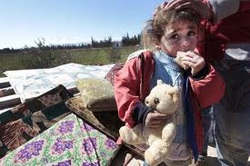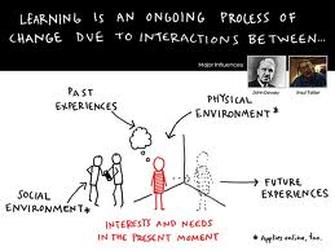
The assessment showed that people in the camp were suffering from the camp environment (e.g. heat, dust, no electricity, unclean toilets), worry about friends and family in Syria, having nothing to do in the camp, safety concerns, and not being able to take care of their appearance (e.g. getting a haircut, clothes). The most common activities that helped men deal with stress were praying, seeking out time alone, talking and spending time with family and friends, going out, walking, and working. Most men were doing these activities in the camp except for talking with family and friends (due to being separated) and working. Activities that usually helped women were household chores, talking to family and friends, praying, walking, going to work, going out, sleeping, crying and smoking. However, none of the women reported being able to do chores, walk, go out, or work in the camp. Suggestions from people to improve the camp included electricity and lights, play areas and activities for children, having more and clean bathrooms and showers, fans, better medical care, distribution of items closer to tents, paving roads, changing tents to cara vans, being able to work, education for children, better food and cold water, clothes, small stoves to make tea and coffee, hats/sunblock, financial help, moving the camp and meeting spaces for camp residents. The report came up with a series of practical recommendations to improve the wellbeing and comfort of these refugees.
The third incident involved bereavement in the family. My wife's auntie died in Iran and she made time to go and comfort another auntie before she flew to be with her family in Iran. It seemed to me that this was another example of how our individual wellbeing is intermingled with other family members and how we give each other support in times of need. Such acts give meaning to our sense of wellbeing by giving something (time, empathy, practical support) to others and enable the receivers to maintain their sense of being through the love and support being given.
The fourth incident was also triggered by TV, this time the annual Comic Relief event which we watch as a family. There were many heart rending film clips of children in Africa starving or suffering from illnesses that are curable with the right medical treatment. Of course they are designed to disturb us, to shake us out of our comfort zone with the aim of making us give - and they do. This event raised over £70 million. But one clip brought home to me again that wellbeing was simply a matter of context.. being born to parents who were drug addicts meant that one man grew up without any sense of love, comfort and security in his life. And this was only a few miles away in London. How fortunate I was to be born into a family that loved and cared for me, and how fortunate my children and their children are to experience the same. We could all assume that our basic needs for security, food, comfortable home, love and affection, and a good education would be met and allow us to aspire to making the most of the opportunities we have in our fortunate circumstances with the support of family around us.





 RSS Feed
RSS Feed